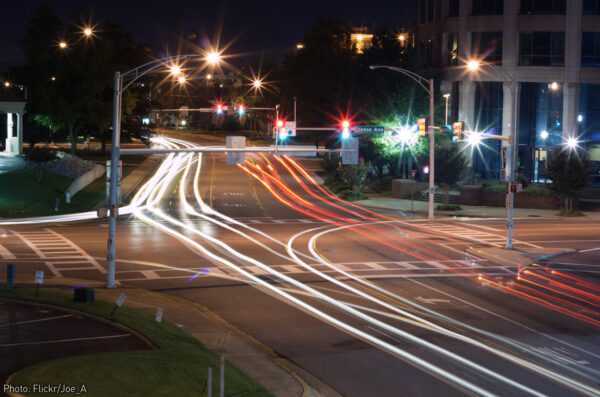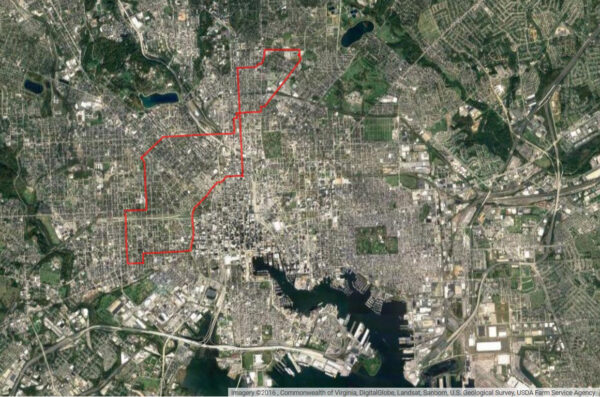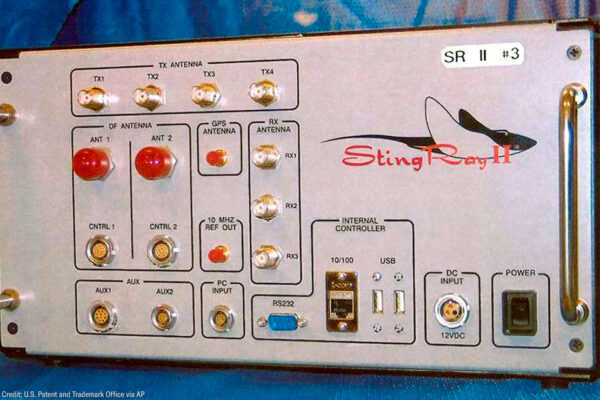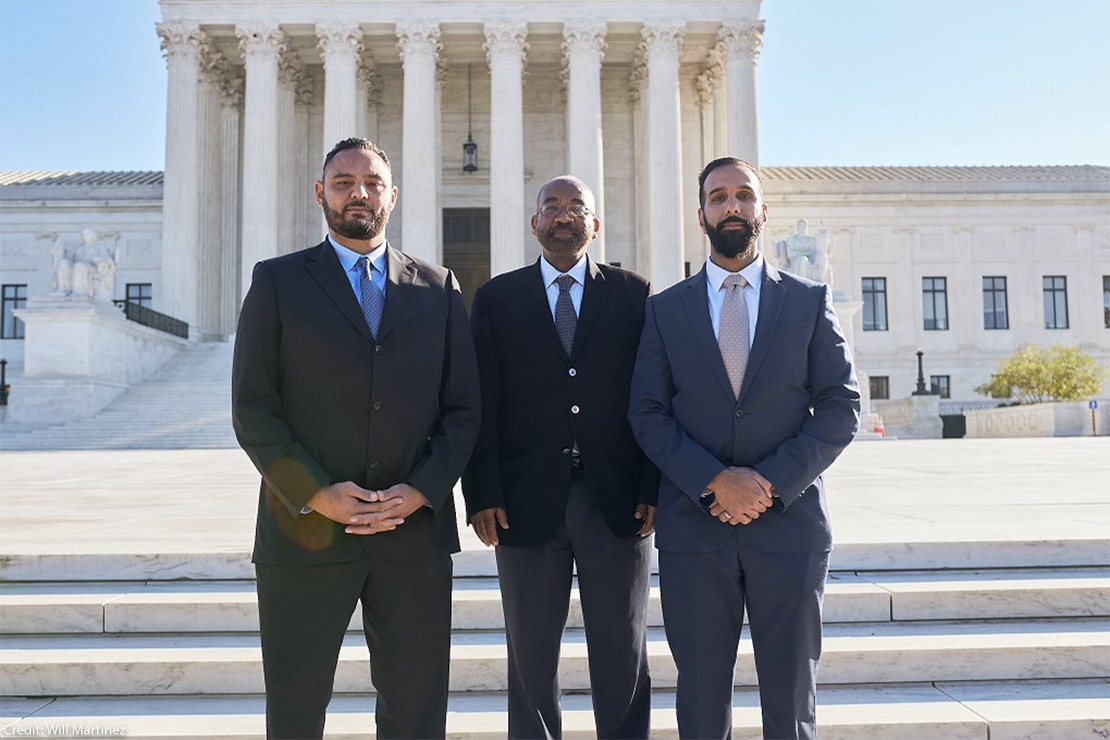Privacy & Technology
FBI v. Fazaga
In a case scheduled to be argued before the U.S. Supreme Court on November 8, 2021, three Muslim Americans are challenging the FBI’s secret spying on them and their communities based on their religion, in violation of the Constitution and federal law. In what will likely be a landmark case, the plaintiffs — Yassir Fazaga, Ali Uddin Malik, and Yasser Abdelrahim — insist that the FBI cannot escape accountability for violating their religious freedom by invoking “state secrets.” The plaintiffs are represented by the Center for Immigration Law and Policy at UCLA School of Law, the ACLU of Southern California, the American Civil Liberties Union, the Council for American Islamic Relations, and the law firm of Hadsell Stormer Renick & Dai.
Status: Closed (Judgment)
View Case
Learn About Privacy & Technology
Featured
U.S. Supreme Court
Jun 2018

Privacy & Technology
Carpenter v. United States
The Supreme Court ruled that the government needs a warrant to access a person’s cellphone location history. The court found in a 5 to 4 decision that obtaining such information is a search under the Fourth Amendment and that a warrant from a judge based on probable cause is required.
Court Case
Dec 2016

Privacy & Technology
Sarkar v. Doe - PubPeer Subpoena Challenge
The ACLU filed a motion in Michigan state court challenging the constitutionality of a subpoena issued to the website PubPeer demanding that it turn over the identities of anonymous commenters. In March 2015, the trial judge ruled that PubPeer had to unmask one – but only one – of the commenters. Both PubPeer and the researcher appealed, and the ruling was upheld in December 2016.
All Cases
70 Privacy & Technology Cases

Colorado Supreme Court
Sep 2021
Privacy & Technology
National Security
People v. Tafoya
This case concerns whether the government may surreptitiously record the activities around a person’s home using a remotely operated, pole-mounted video camera for an extended period of time without a warrant. On September 13, 2021, the Colorado Supreme Court held that the Fourth Amendment protects against such surveillance and requires that police obtain a warrant.
Explore case
Colorado Supreme Court
Sep 2021

Privacy & Technology
National Security
People v. Tafoya
This case concerns whether the government may surreptitiously record the activities around a person’s home using a remotely operated, pole-mounted video camera for an extended period of time without a warrant. On September 13, 2021, the Colorado Supreme Court held that the Fourth Amendment protects against such surveillance and requires that police obtain a warrant.

Court Case
Aug 2020
Privacy & Technology
Guan v. Wolf
The American Civil Liberties Union, the ACLU of San Diego, and the New York Civil Liberties Union have filed a lawsuit against U.S. Customs and Border Protection (CBP) and U.S. Immigration and Customs Enforcement (ICE) on behalf of five journalists who were subject to unlawful questioning at the U.S. border. The lawsuit claims that border officers violated the First Amendment.
Explore case
Court Case
Aug 2020

Privacy & Technology
Guan v. Wolf
The American Civil Liberties Union, the ACLU of San Diego, and the New York Civil Liberties Union have filed a lawsuit against U.S. Customs and Border Protection (CBP) and U.S. Immigration and Customs Enforcement (ICE) on behalf of five journalists who were subject to unlawful questioning at the U.S. border. The lawsuit claims that border officers violated the First Amendment.

Maryland
Jun 2020
Privacy & Technology
Leaders of a Beautiful Struggle v. Baltimore Police Department
The American Civil Liberties Union (ACLU) and ACLU of Maryland filed a lawsuit against the Baltimore Police Department (BPD) to challenge the constitutionality of deploying a wide-area aerial surveillance program that will put virtually all Baltimore residents under constant, aerial surveillance.
Explore case
Maryland
Jun 2020

Privacy & Technology
Leaders of a Beautiful Struggle v. Baltimore Police Department
The American Civil Liberties Union (ACLU) and ACLU of Maryland filed a lawsuit against the Baltimore Police Department (BPD) to challenge the constitutionality of deploying a wide-area aerial surveillance program that will put virtually all Baltimore residents under constant, aerial surveillance.

Court Case
May 2020
Privacy & Technology
ACLU v. CBP - FOIA Case for CBP and ICE Records Related to the Use of Cell-Site Simulator Technology
On May 19, 2017, ACLU submitted a FOIA request to U.S. Immigration and Customs Enforcement (ICE) and Customs and Border Protection (CBP) demanding records on the federal government's acquisition and use of "cell site simulators" (also known as "Stingrays" or "IMSI catchers"), powerful surveillance devices that target cell phones by impersonating a wireless service provider's cell tower. For more than two years, the two agencies failed to properly process the Request or produce any responsive records until the ACLU sued on December 11, 2019.
Explore case
Court Case
May 2020

Privacy & Technology
ACLU v. CBP - FOIA Case for CBP and ICE Records Related to the Use of Cell-Site Simulator Technology
On May 19, 2017, ACLU submitted a FOIA request to U.S. Immigration and Customs Enforcement (ICE) and Customs and Border Protection (CBP) demanding records on the federal government's acquisition and use of "cell site simulators" (also known as "Stingrays" or "IMSI catchers"), powerful surveillance devices that target cell phones by impersonating a wireless service provider's cell tower. For more than two years, the two agencies failed to properly process the Request or produce any responsive records until the ACLU sued on December 11, 2019.

Court Case
Jan 2020
Privacy & Technology
ACLU v. US Department of Justice
The ACLU, ACLU of Northern California, Electronic Frontier Foundation, and Stanford Law School’s Riana Pfefferkorn are petitioning to unseal a secret judicial ruling reportedly holding that the Department of Justice cannot force Facebook to alter Facebook Messenger in order to enable the FBI to conduct wiretaps in an investigation. The petition, initially filed in the Eastern District of California, argues that the First Amendment and common-law require public access to the legal ruling as well as to the docket sheet and certain other portions of the underlying proceeding.
Explore case
Court Case
Jan 2020

Privacy & Technology
ACLU v. US Department of Justice
The ACLU, ACLU of Northern California, Electronic Frontier Foundation, and Stanford Law School’s Riana Pfefferkorn are petitioning to unseal a secret judicial ruling reportedly holding that the Department of Justice cannot force Facebook to alter Facebook Messenger in order to enable the FBI to conduct wiretaps in an investigation. The petition, initially filed in the Eastern District of California, argues that the First Amendment and common-law require public access to the legal ruling as well as to the docket sheet and certain other portions of the underlying proceeding.
